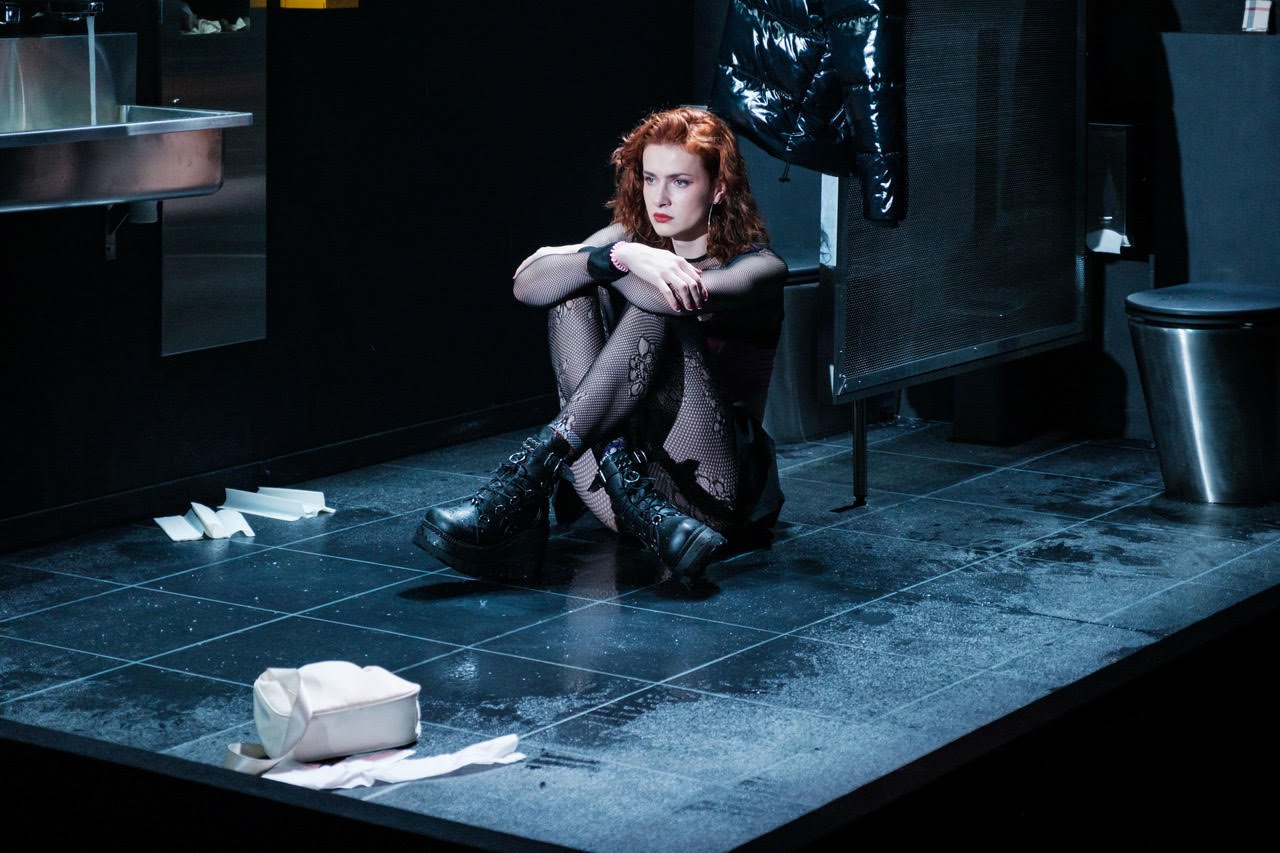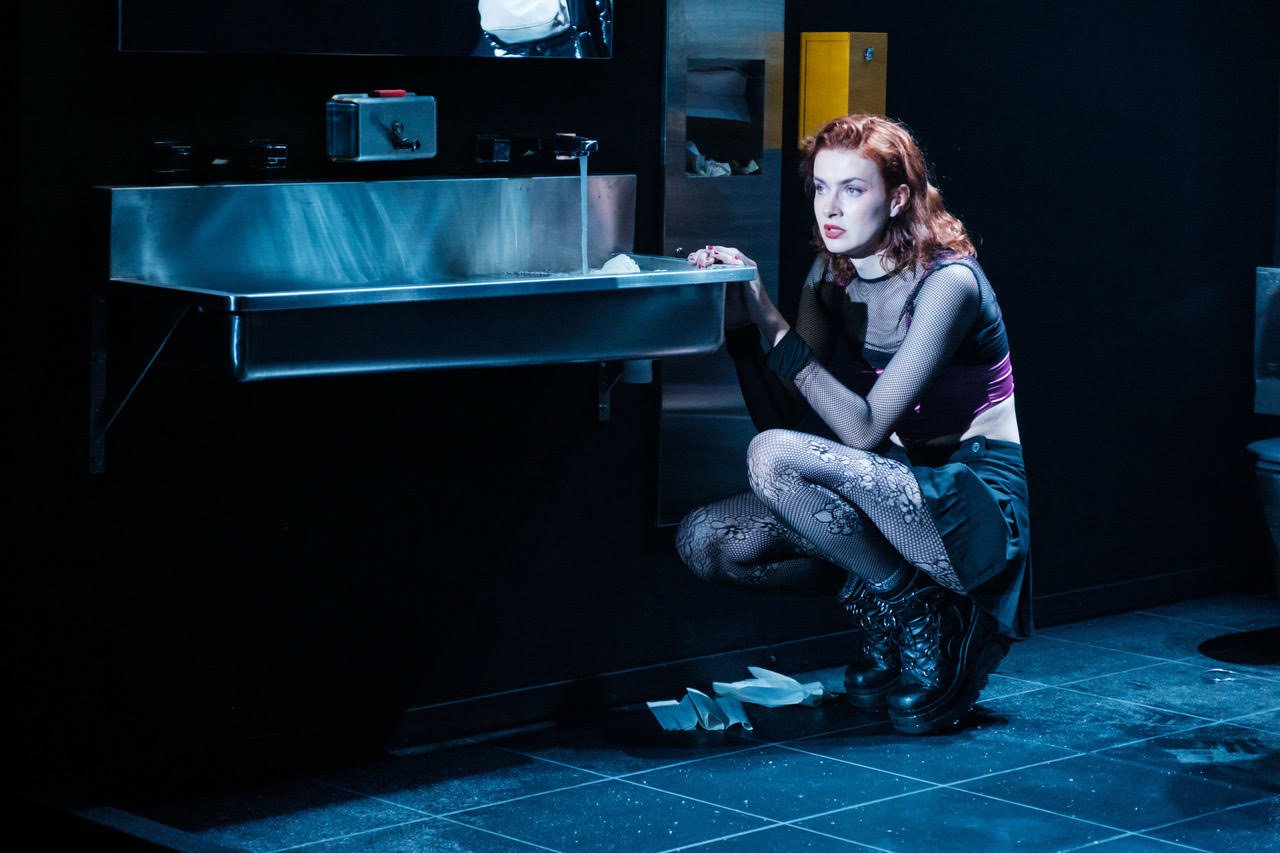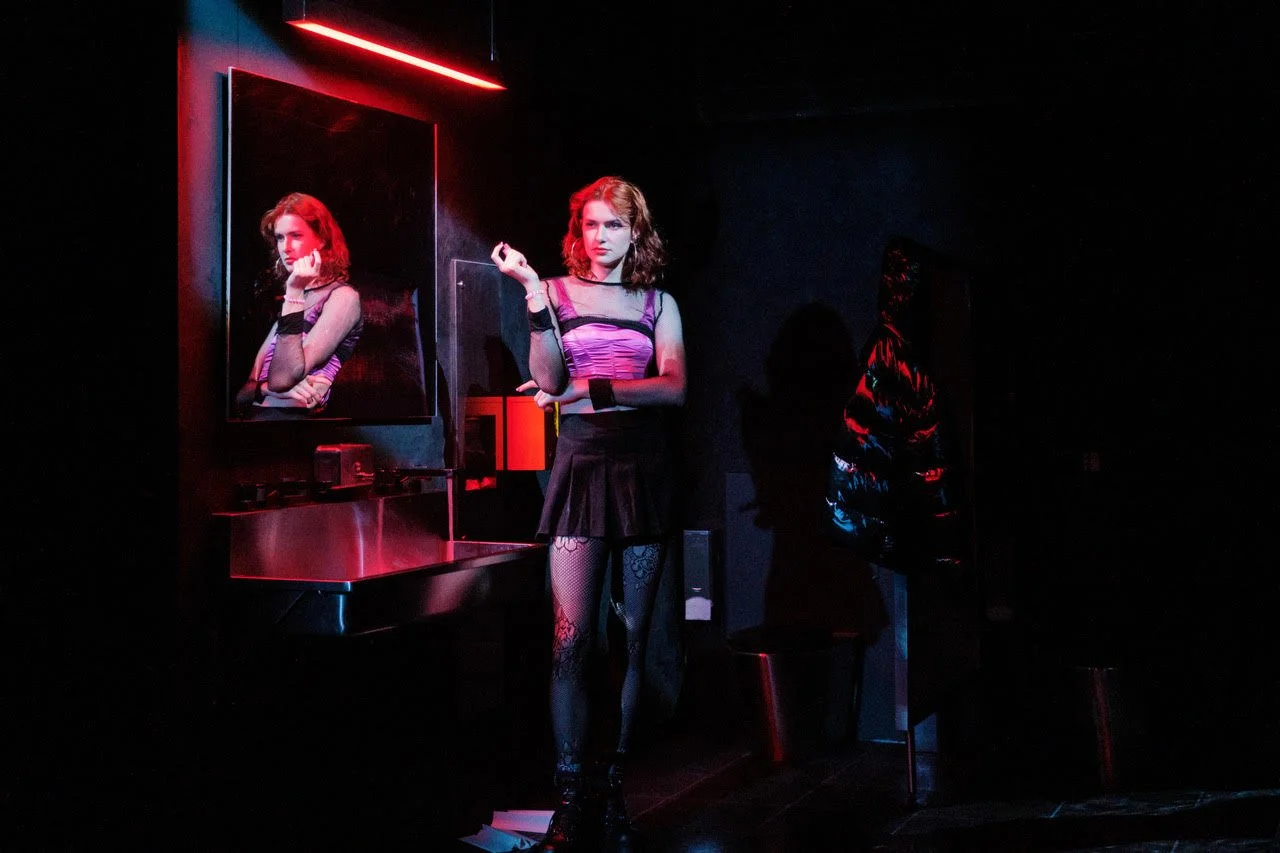Review: Overflow is achingly familiar
Written by Travis Alabanza, Directed by Dino Dimitriadis
Review by Charlotte Smee
I’m not a woman. I’m also not a man. I jokingly describe my gender to friends as “the one that makes anyone who is attracted to me gay”. In simpler terms, I like the idea of fluidity. Coincidentally, I’m also bisexual. Go figure. I don’t really need to bare my soul on the internet to tell you that Overflow is a good piece of theatre, but I think it’s important to know that this play hurt my feelings because it was achingly familiar. I like to hide in plain sight because I know from watching my dear trans and queer friends that while being trans is truly excellent, freeing, and great, it’s also actually kind of awful. I work in lawyer land, so even though it feels radical to have my pronouns in my email signature, I don’t really push the issue when people call me “Madam Associate”.
Overflow is a story written by a British, trans playwright Travis Alabanza. In the first Australian production, directed by genderqueer Dino Dimitriadis and brought to the stage by an all-trans and gender diverse team, they want to show you some things about gender, their way.
Rosie (Janet Anderson) is a pre-emptive pisser. Well, at least the times when she’s successful. She’s also a trans woman. In this 60-minute monologue, she’s distracting herself in a women’s bathroom from some unseen teenage boys waiting for her to come out. She tells us stories of acceptance, her performatively supportive cisgendered school friend Charlotte, her brash new trans friend Z and the mysterious flooding of her primary school bathrooms three weeks in a row.
The day after I saw Overflow, an email circulated through lawyer land from a favourite barrister of mine (shut up, I know it’s nerdy to have a favourite barrister). That barrister announced, briefly and to the point, that they had a new name and new pronouns, and they would be referred to as such from now on. I felt unbelievably validated in my choice of favourite barrister, and honestly, nothing but joy for them. Then, I heard some stories about other barristers who had done the same many years ago and was quickly reminded that being trans is simultaneously joyful and terrifying.
Alabanza’s writing captures this feeling all too well. Rosie is given space to be simultaneously beautiful, ugly, powerful, joyful, vulnerable, courageous, brash, terrified and sad. Trans people are really good at being lots of things at once. Dimitriadis tenderly draws out these things in Anderson and gives her space to stomp around in a dirty bathroom, lay down in the mess she’s made for herself, and contemplate how she connects with her borderline shitty cis friends.
Lighting design by Benjamin Brockman and sound by Danni Esposito bathe Dimitriadis’s black, grey and silver set in colour and life. Greens, pinks and yellows paired with pulsing club beats took me right back to Retro Night at the Illawarra Hotel — and drunken conversations with strangers telling them to dump their boyfriends. An excellent moment of the show came when Rosie finished speaking and a well-timed splash of water spilled over the top of the metal sink and onto the floor. By the end of her monologue, the walls were covered in wads of wet paper towel and the floors were awash with water and rubbish from the bin. This was such a brilliantly simple image demonstrating the physical result of Rosie bursting at the seams and letting herself lay everything bare.
Anderson as Rosie is sensational. She speaks with great pace and control, playing everyone from her friend Charlotte and the other girls in the bathroom to her brothers tormenting her at home. Lighting and sound help her transform, and she works with every design element with precision and well-rehearsed ease. She brings a great sense of humour to the role and embodies the club rat taking advice from other messy bitches so well.
Overflow is many things at once: it is important, it’s painful, it’s awful, it’s funny, it’s heartbreaking, it’s familiar, it’s joyful, and it’s powerfully alive. It doesn’t try to give answers for anything, and it certainly doesn’t teach you how to be. It’s a window into what it’s like to walk into the bathroom and feel weird, or scared, or uncomfortable, and to just do your best anyway. This is theatre that isn’t afraid to hold you while it shows you how it really feels.
In the bathroom at Overflow, you’re encouraged to write something on the walls. In my stall I saw scrawled on the tiles: “Speak, even if your voice shakes”. And here we are, speaking. Take your seat in the theatre and listen.
Overflow plays at the Eternity Playhouse, Darlinghurst until 25 September. Find tickets and information here.
Darlinghurst Theatre Co reserves four “Pay What You Can” tickets to each performance for those who face social barriers to attending theatre, including those who identify as gender diverse. Contact jacqueline@darlinghursttheatre.com to access them.
Images by Robert Catto




